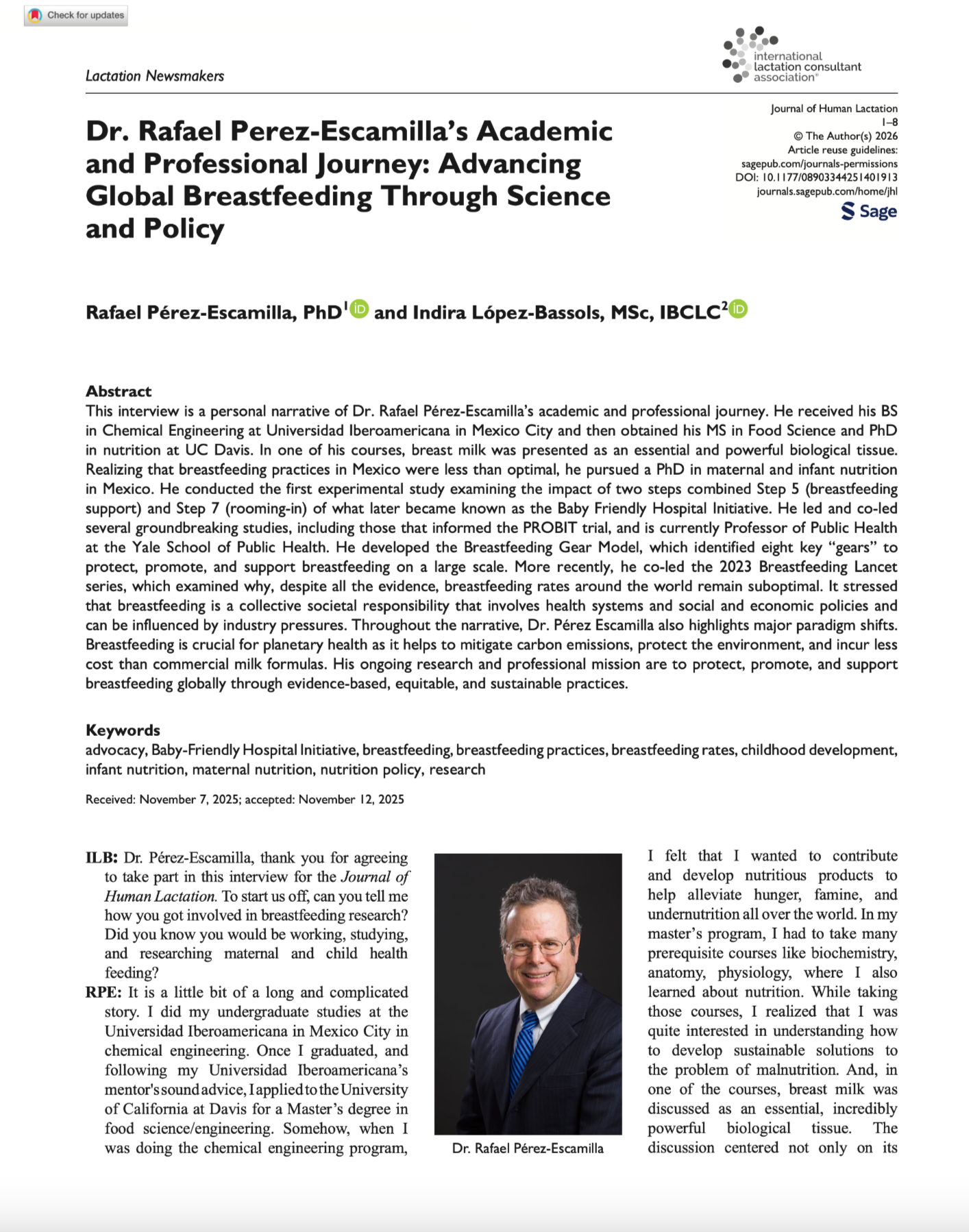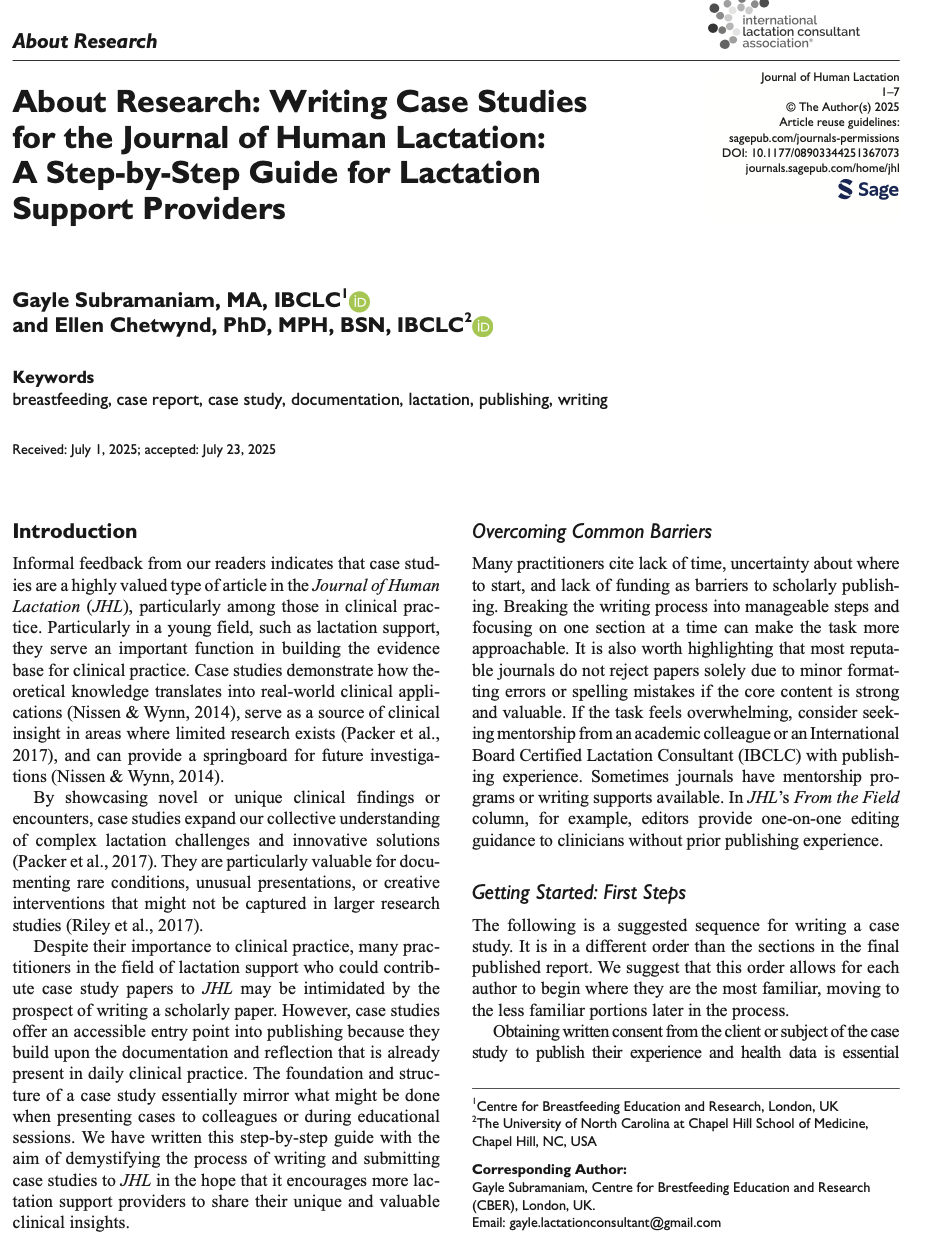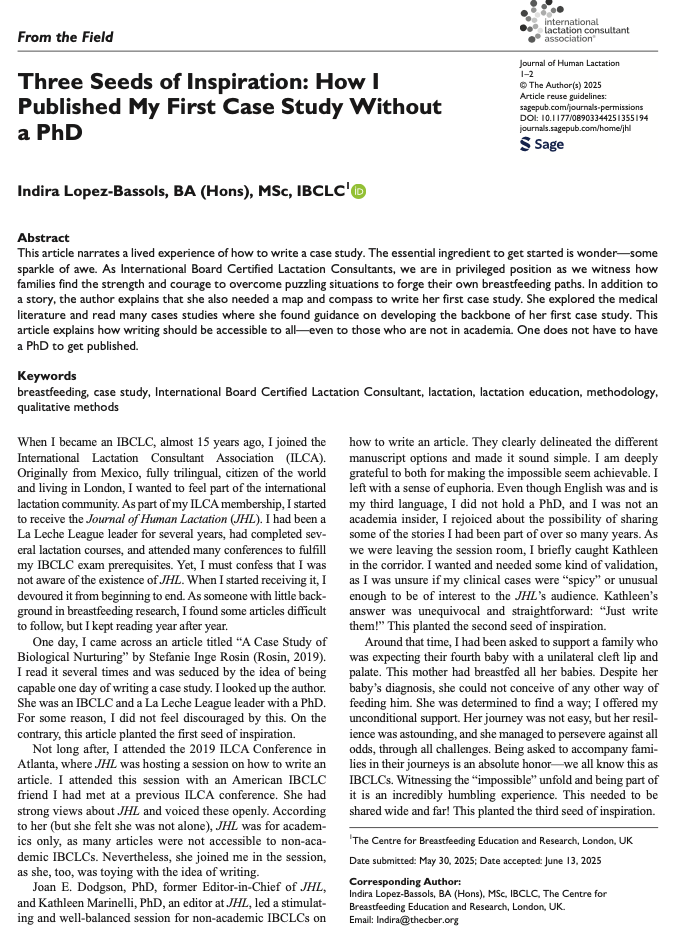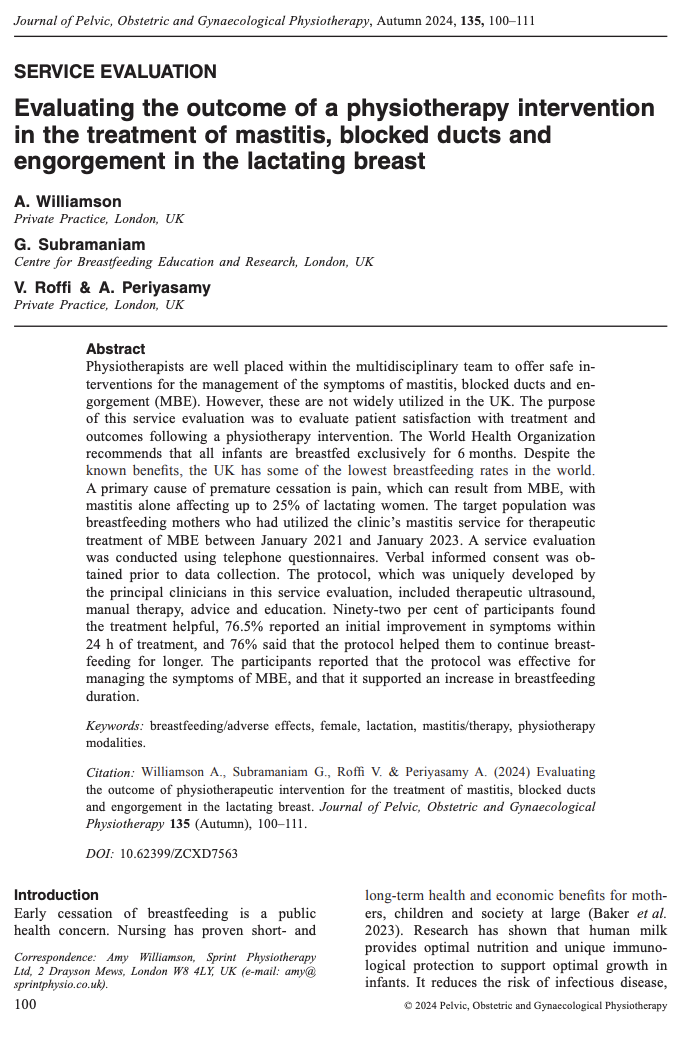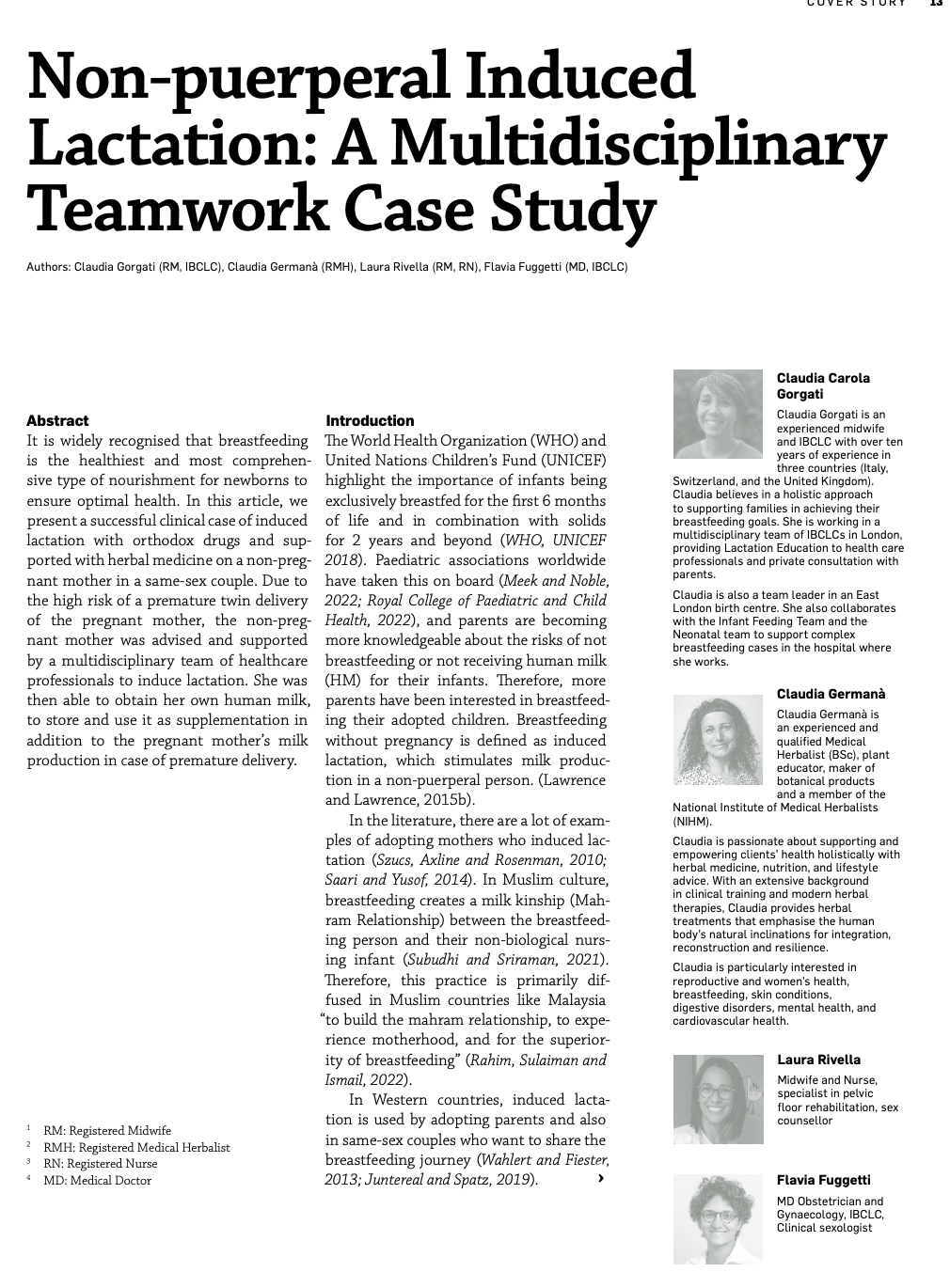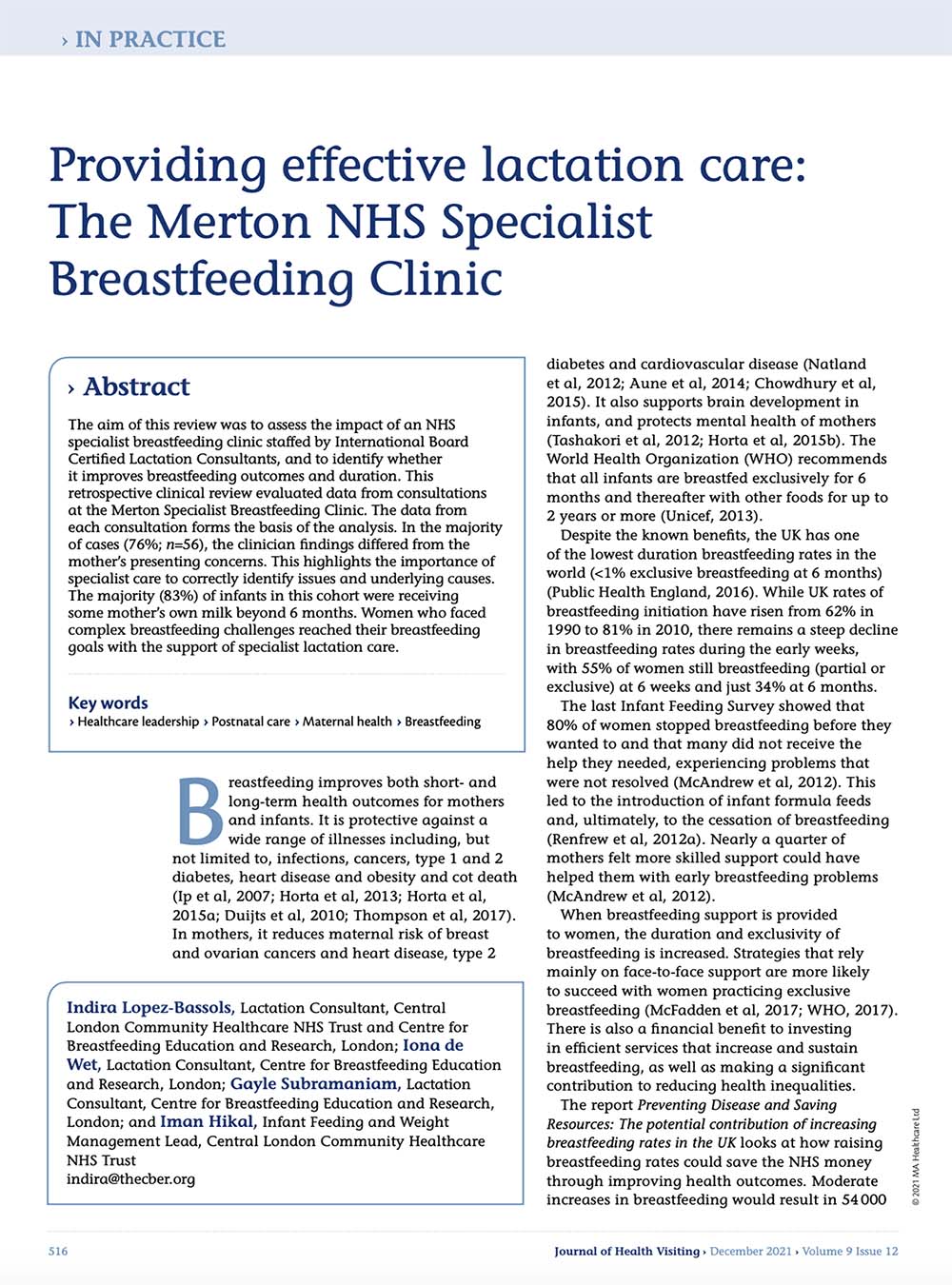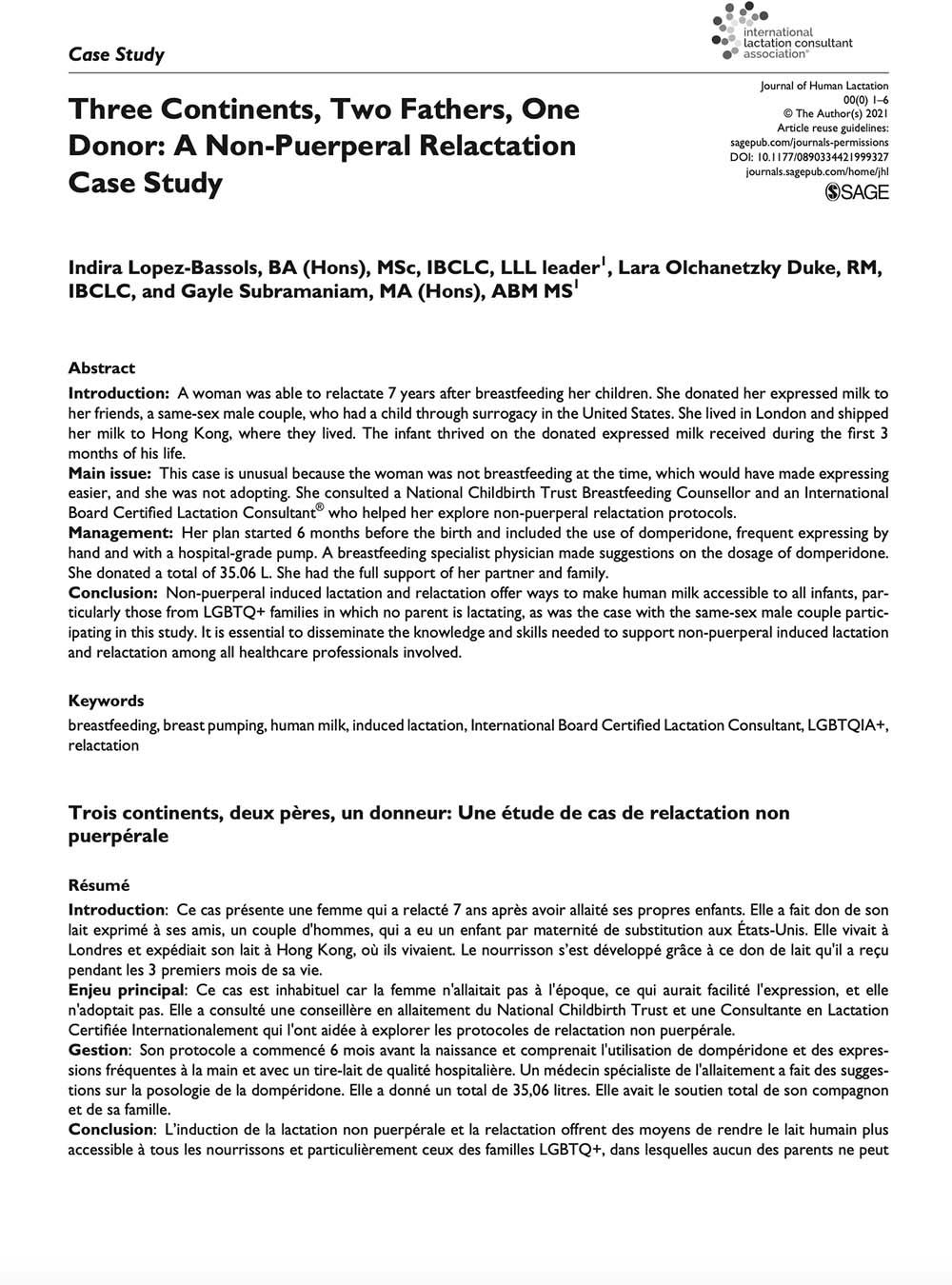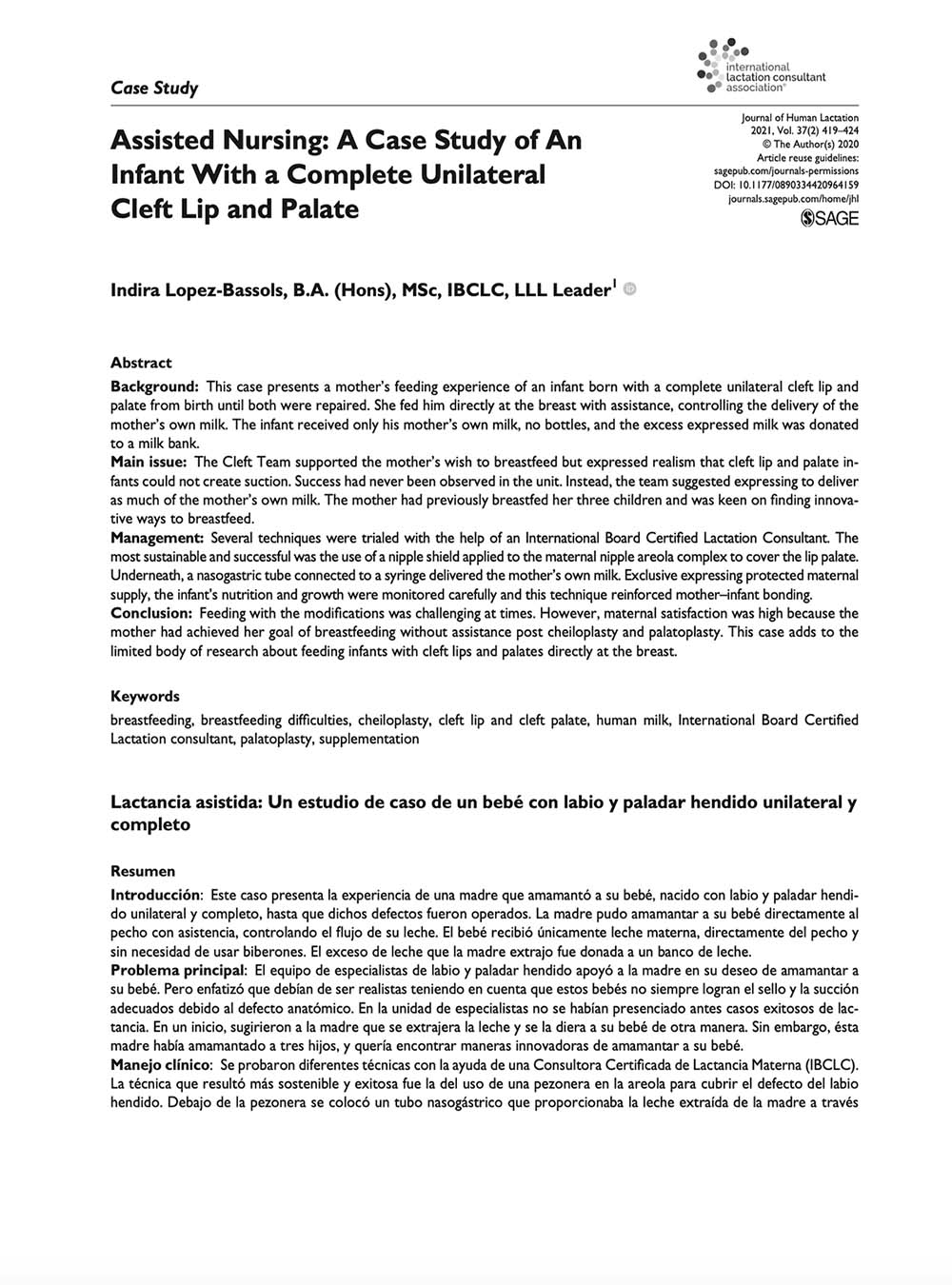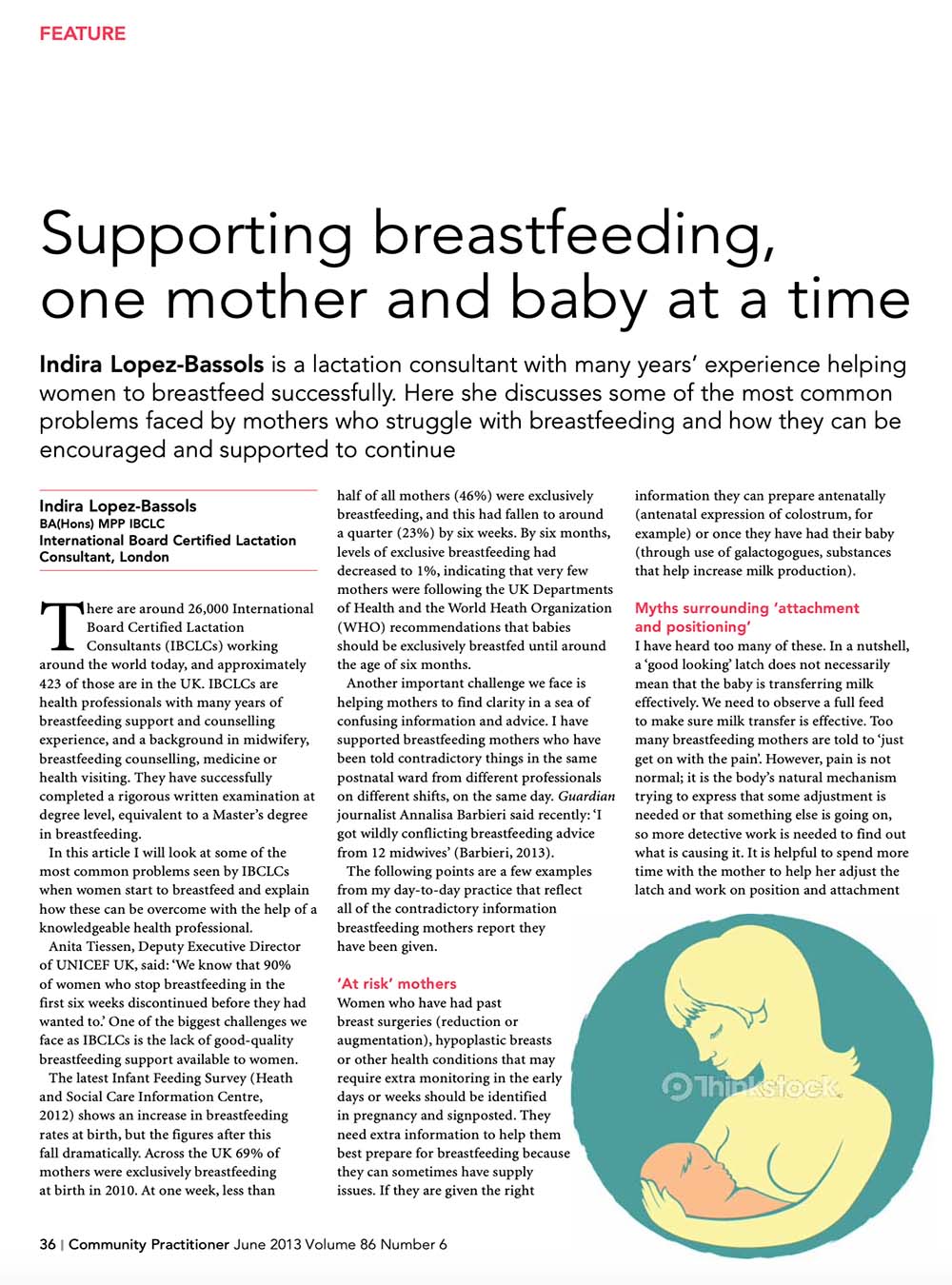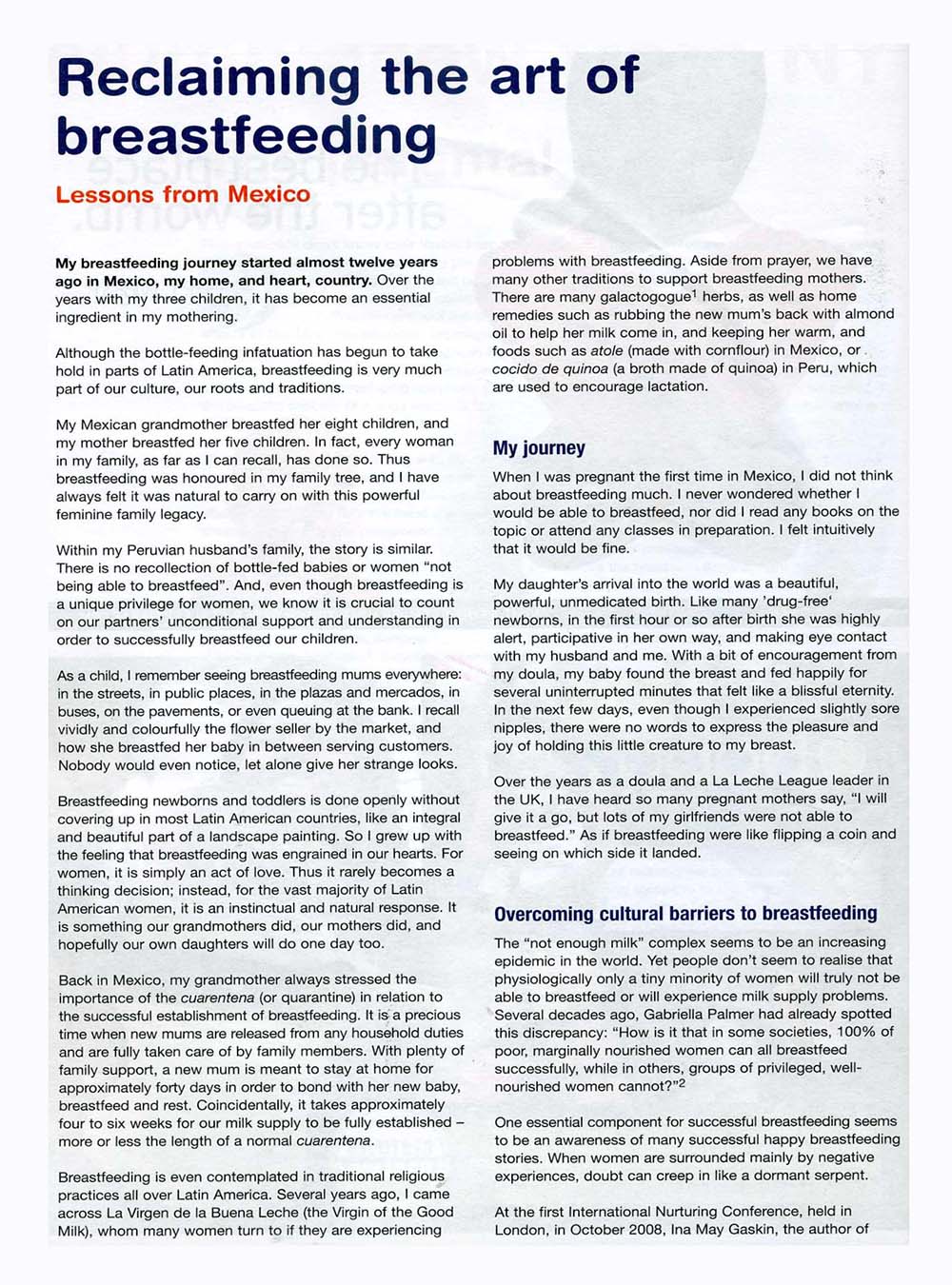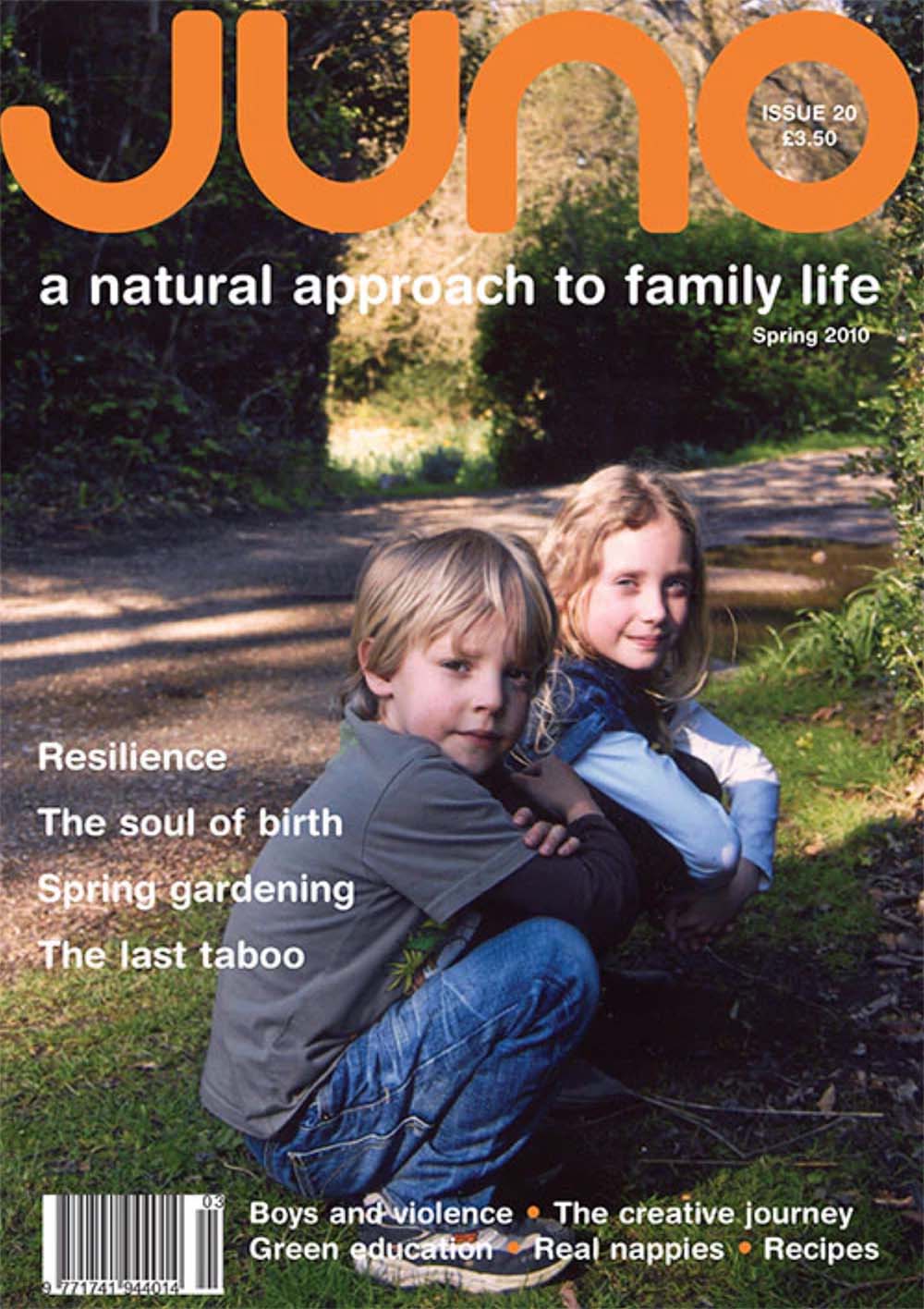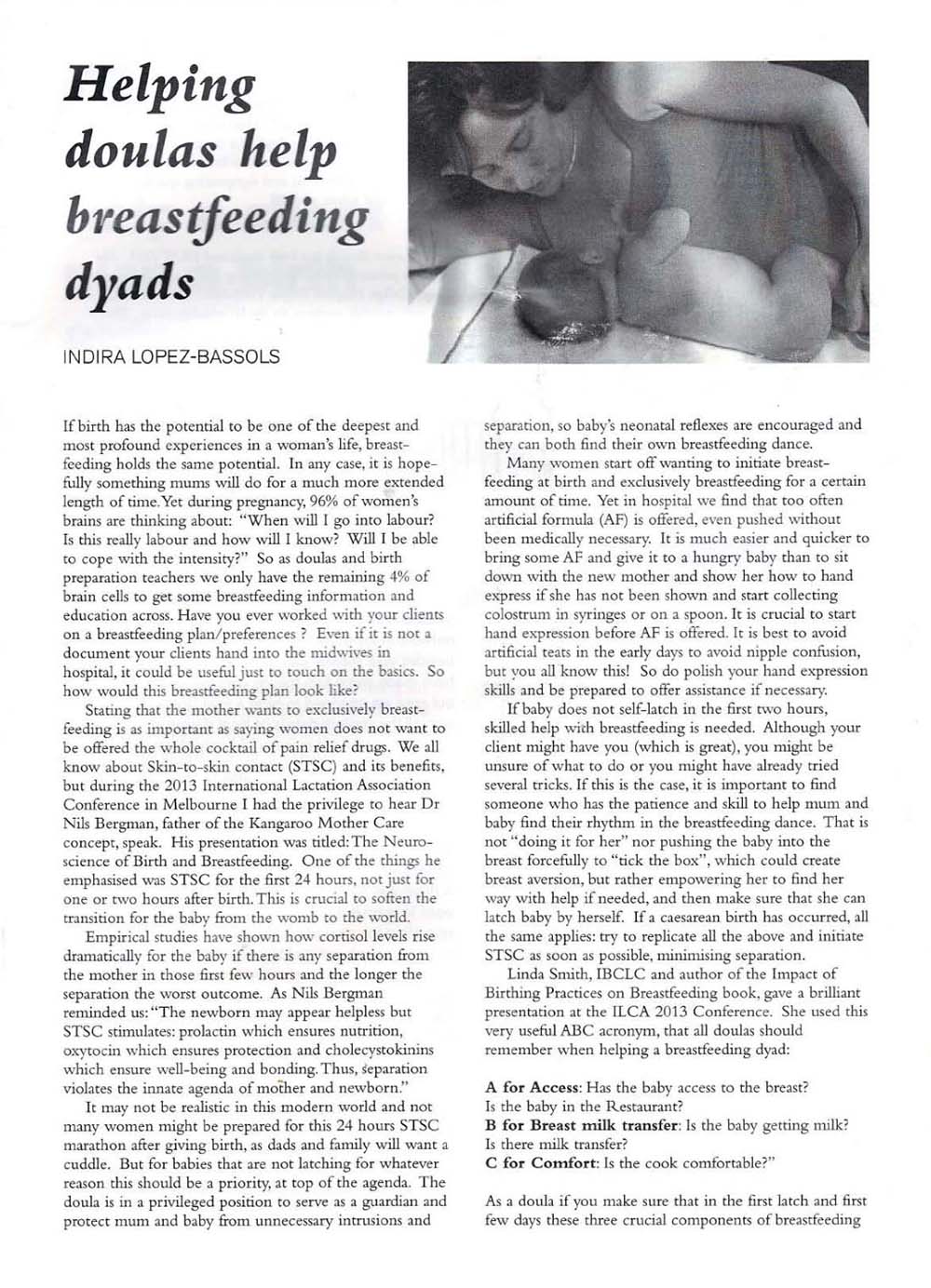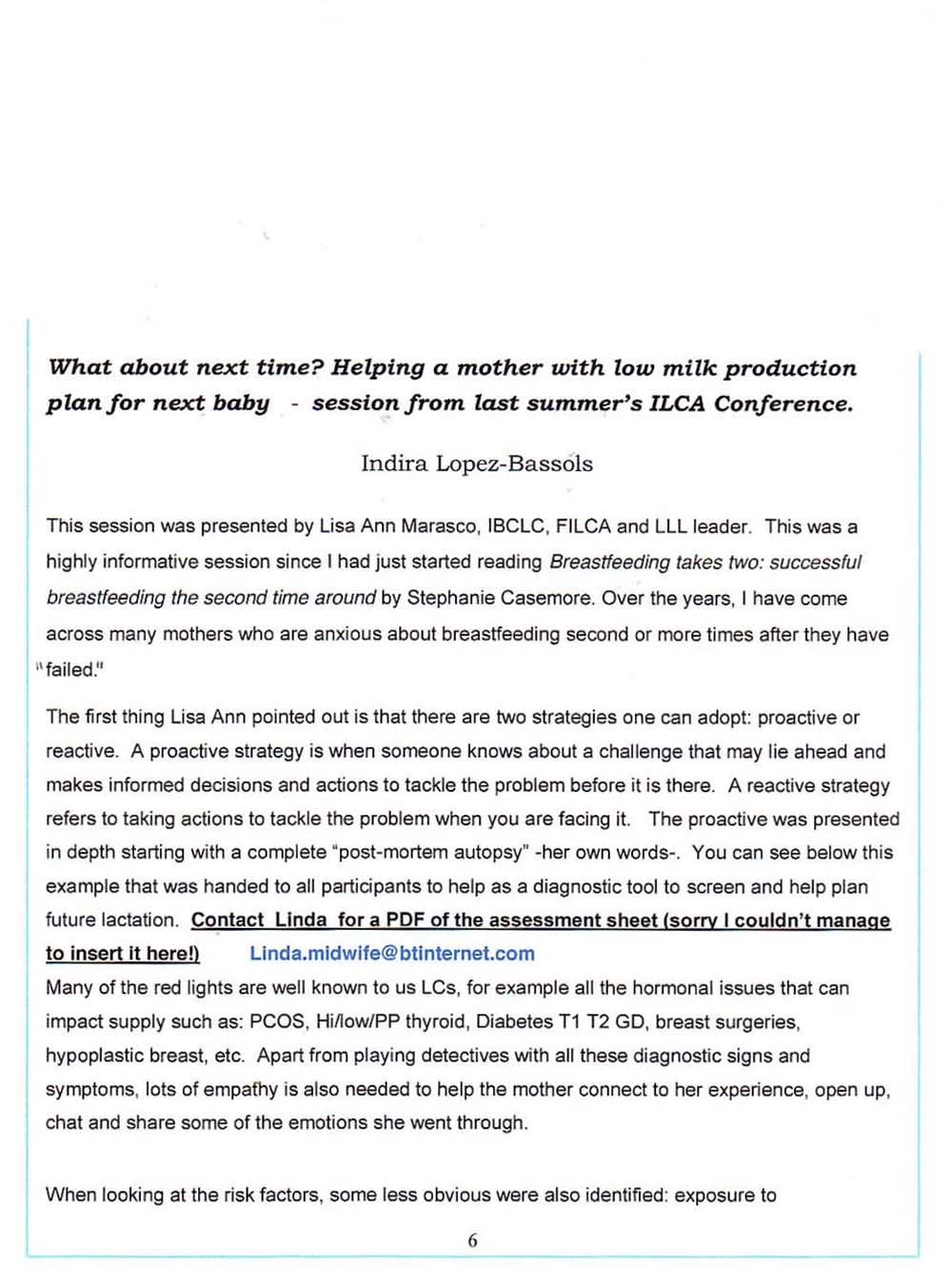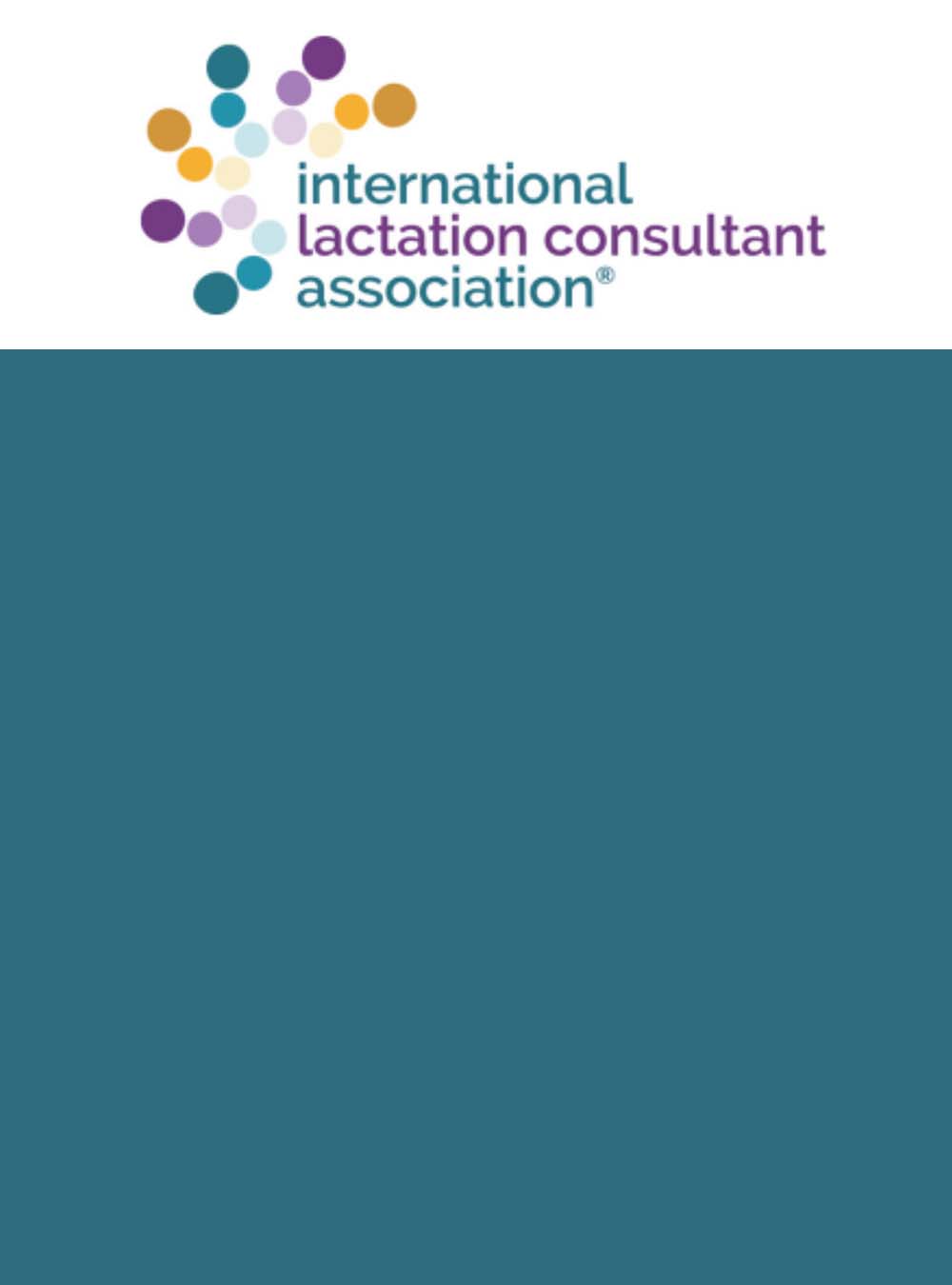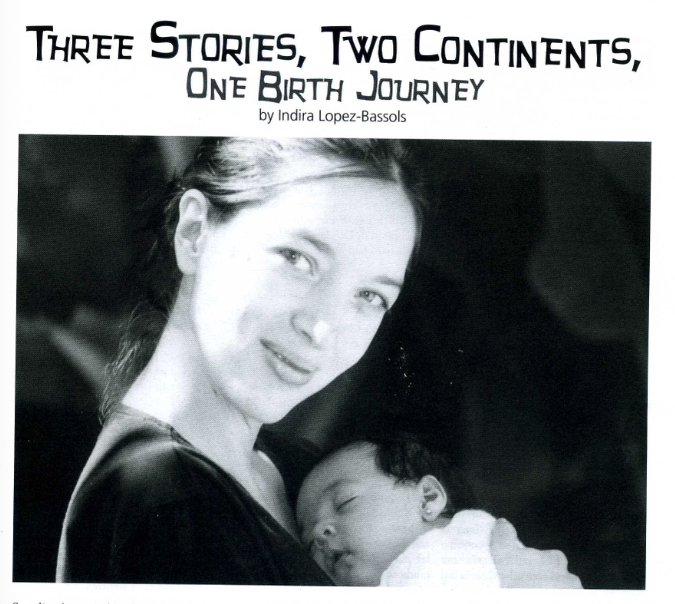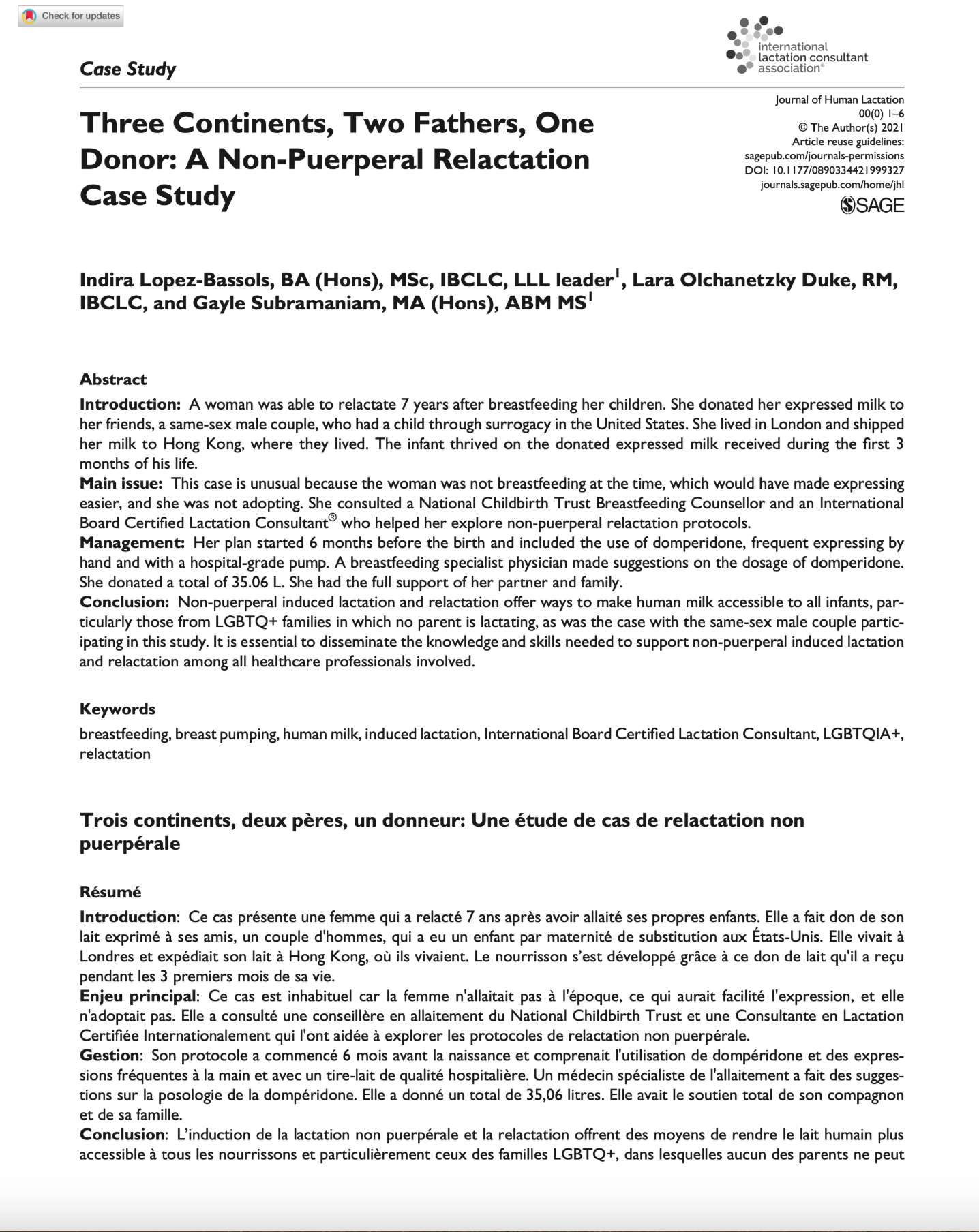-
Dr. Rafael Perez-Escamilla’s Academic and Professional Journey: Advancing Global Breastfeeding Through Science and Policy
Journal of Human Lactation published 19 of February 2026This interview is a personal narrative of Dr. Rafael Pérez-Escamilla’s academic and professional journey. He conducted the first experimental study examining the impact of two steps combined Step 5 (breastfeeding support) and Step 7 (rooming-in) of what later became known as the Baby Friendly Hospital Initiative. He led and co-led several groundbreaking studies, including those that informed the PROBIT trial, and is currently Professor of Public Health at the Yale School of Public Health. He developed the Breastfeeding Gear Model, which identified eight key “gears” to protect, promote, and support breastfeeding on a large scale.
-
About Research: Writing Case Studies for the Journal of Human Lactation: A Step-by-Step Guide for Lactation Support Providers
Journal of Human Lactation, published on 7th October 2025 (peer reviewed).Case studies serve an important function in building the evidence base for clinical practice. They demonstrate how theoretical knowledge translates into real-world clinical applications, serve as a source of clinical insight in areas where limited research exists, and can provide a springboard for future investigations. We have written this step-by-step guide with the aim of demystifying the process of writing and submitting case studies to JHL in the hope that it encourages more lactation support providers to share their unique and valuable clinical insights.
-
Three Seeds of Inspiration: How I Published My First Case Study Without a PhD
Journal of Human Lactation (peer reviewed) published 3 August 2025This article narrates a lived experience of how to write a case study. The essential ingredient to get started is wonder—some sparkle of awe. In addition to a story, the author explains that she also needed a map and compass to write her first case study. This article explains how writing should be accessible to all—even to those who are not in academia. One does not have to have a PhD to get published.
-
Evaluating the outcome of a physiotherapy intervention in the treatment of mastitis, blocked ducts and engorgement in the lactating breast
The Journal of Pelvic Obstetric and Gynaecological Physiotherapy, published on 7th October 2024 (peer reviewed)The purpose of this service evaluation was to evaluate patient satisfaction with treatment and outcomes following a physiotherapy intervention. The protocol included therapeutic ultrasound, manual therapy, advice and education. The participants reported that the protocol was effective for managing the symptoms of MBE, and that it supported an increase in breastfeeding duration.
-
Non-puerperal Induced Lactation: A Multidisciplinary Teamwork Case Study
Published in Elacta Magazine, Lactation & Breastfeeding, Issue 3/2024A clinical case of induced lactation with orthodox drugs and supported with herbal medicine on a non-pregnant mother in a same-sex couple.
-
Providing effective lactation care: The Merton NHS Specialist Breastfeeding Clinic
(peer-reviewed) published on the 15 of December, 2021The aim of this review was to assess the impact of an NHS specialist breastfeeding clinic staffed by International Board Certified Lactation Consultants, and to identify whether it improves breastfeeding outcomes and duration.
-
Three Continents, Two Fathers, One Donor: A Non-puerperal Relactation Case Study
Journal of Human Lactation (peer-reviewed), published on the 22 of April 2021A woman was able to relactate 7 years after breastfeeding her children. She donated her expressed milk to her friends, a same-sex male couple, who had a child through surrogacy in the United States. She lived in London and shipped her milk to Hong Kong, where they lived. The infant thrived on the donated expressed milk received during the first 3 months of his life.
-
Assisted Nursing: A Case Study of an Infant With a Complete Unilateral Cleft Lip and Palate
Journal of Human Lactaton (peer-reviewed), published on the 18 of November 2020This case presents a mother’s feeding experience of an infant born with a complete unilateral cleft lip and palate from birth until both were repaired. She fed him directly at the breast with assistance, controlling the delivery of the mother’s own milk. The infant received only his mother’s own milk, no bottles, and the excess expressed milk was donated to a milk bank.
-
The Alchemy of Connection: An Essential Ingredient When Supporting Breastfeeding Dyads
Clinical Lactation Journal (peer-reviewed), Volume 10, Number 04, August 2019Every encounter in lactation care should aim to set the ground for an emerging human connection between the lactation consultant (LC) and the breastfeeding mother. Cultivating connection is as important as adequate clinical competencies and effective communication skills.
-
Supporting Breastfeeding, One Mother and Baby at a Time
Community Practitioner, June 2013There are around 26,000 International Board Certified Lactation Consultants (IBCLCs) working around the world today, and approximately 423 of those are in the UK. IBCLCs are health professionals with many years of breastfeeding support and counselling experience, and a background in midwifery, breastfeeding counselling, medicine or health visiting. They have successfully completed a rigorous written examination at degree level, equivalent to a Master’s degree in breastfeeding.
-
Reclaiming the Art of Breastfeeding
Midwifery Today, Number 92, Winter 2010 -
The Art of Breastfeeding: Lessons from Mexico
Juno, Issue 20, Spring 2010 -
Helping Doulas Help Breastfeeding Dyads
Doulaing: a Newsletter published for doulas by doulas, Doula UK, Autumn 2013 issue 21 -
What about next time? Helping a mother with low milk supply production plan for next baby
LC GB Newsletter 64, March 2013 -
Embracing the ILCA Sisterhood
Lactation Matters, 12 September 2013My first encounter with the International Lactation Consultant Association (ILCA) was in the form of an email when I had just become an IBCLC. It was invitation to a trial membership, which of course I accepted. Although I did look around the articles online and found the information sheets invaluable, I thought naively that it looked like an interesting AMERICAN organization but too far across the Atlantic sea to be valuable to me in Great Britain.
-
Three Stories, Two Continents, One Birth Story
Midwifery Today


